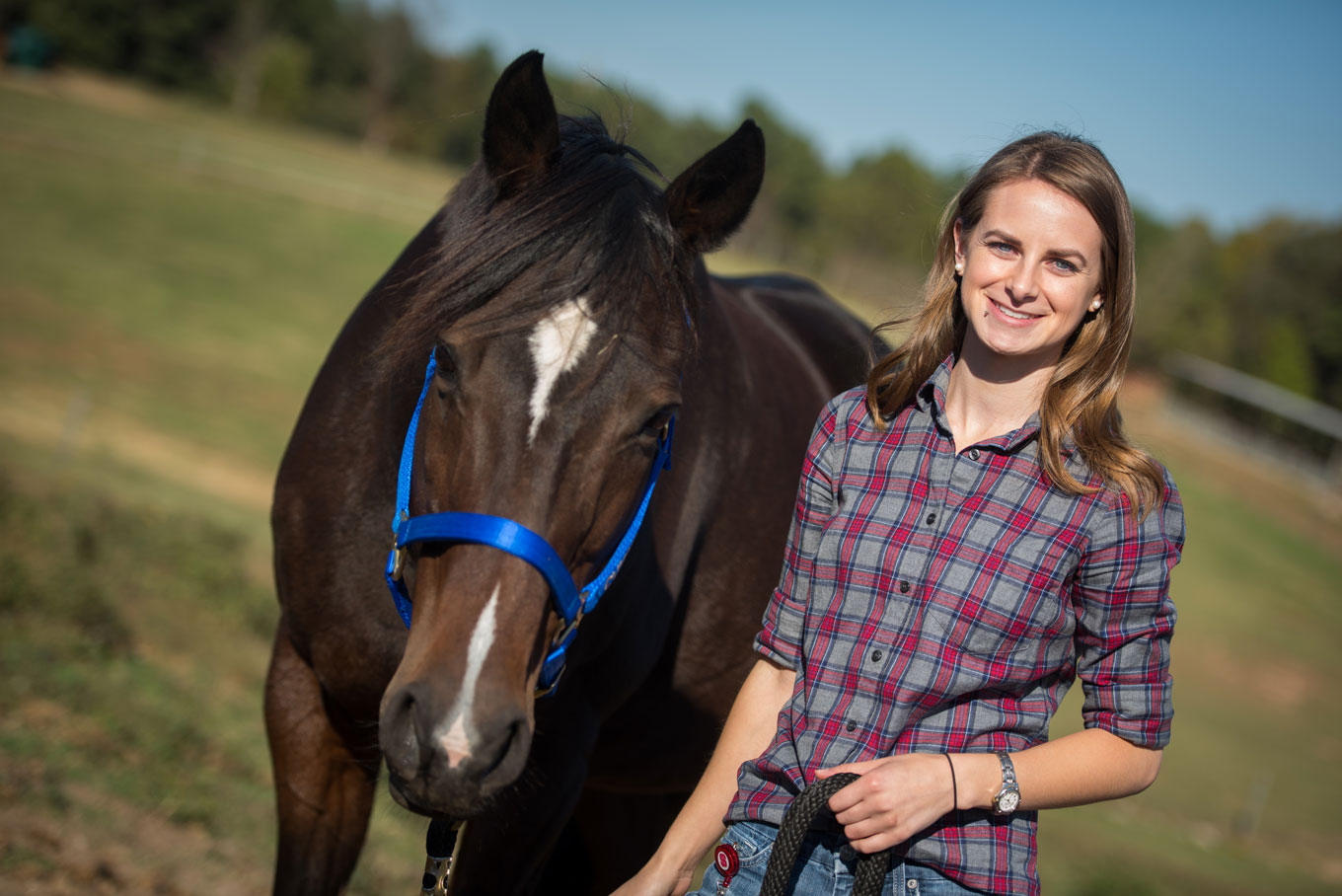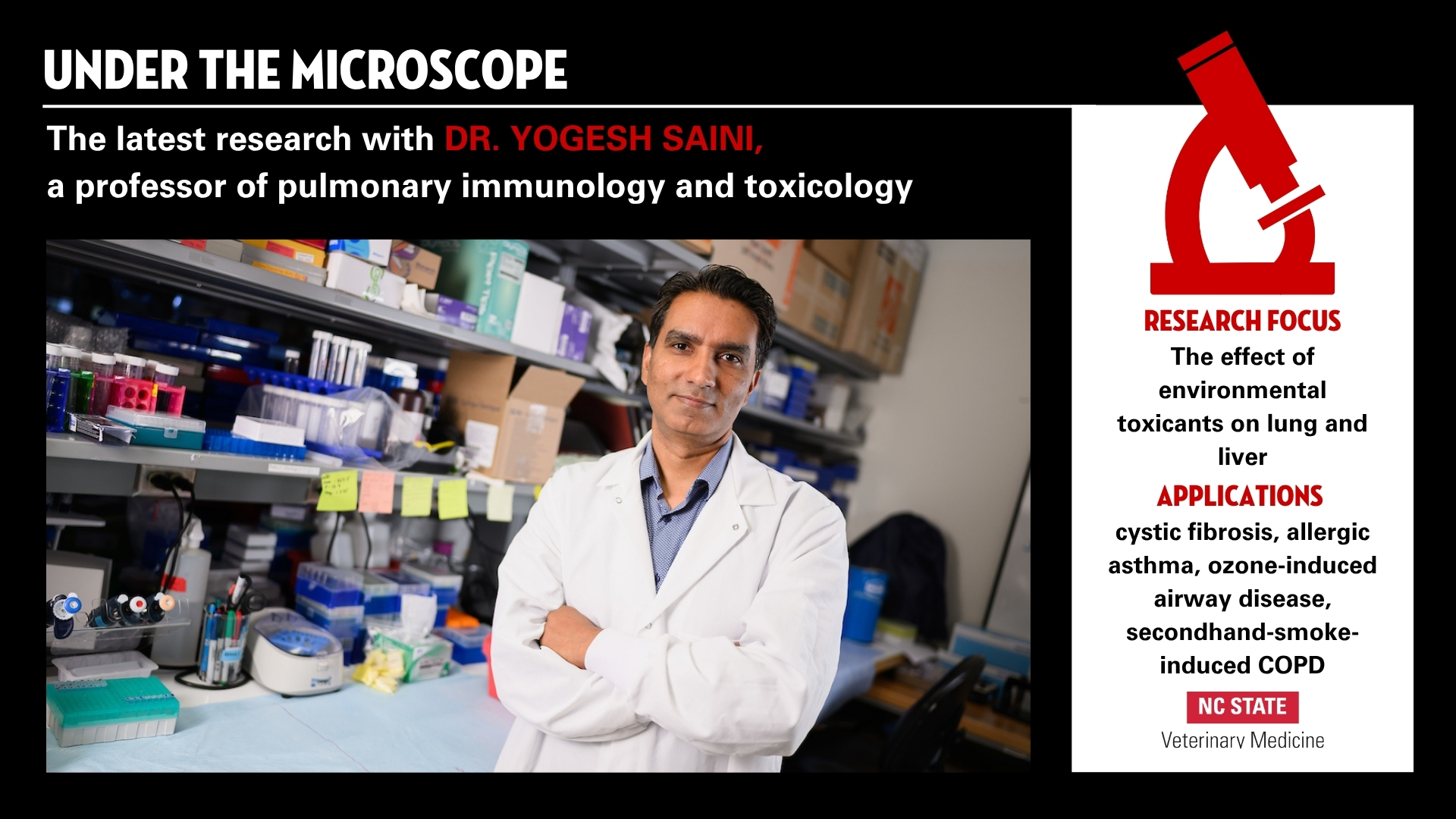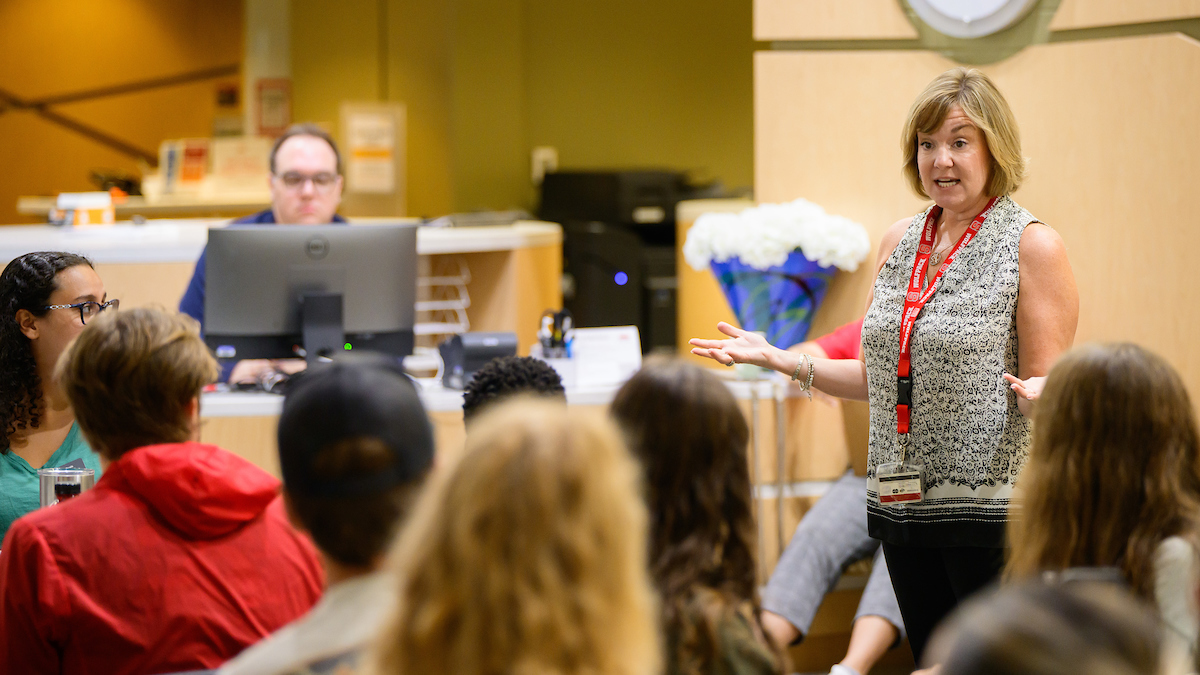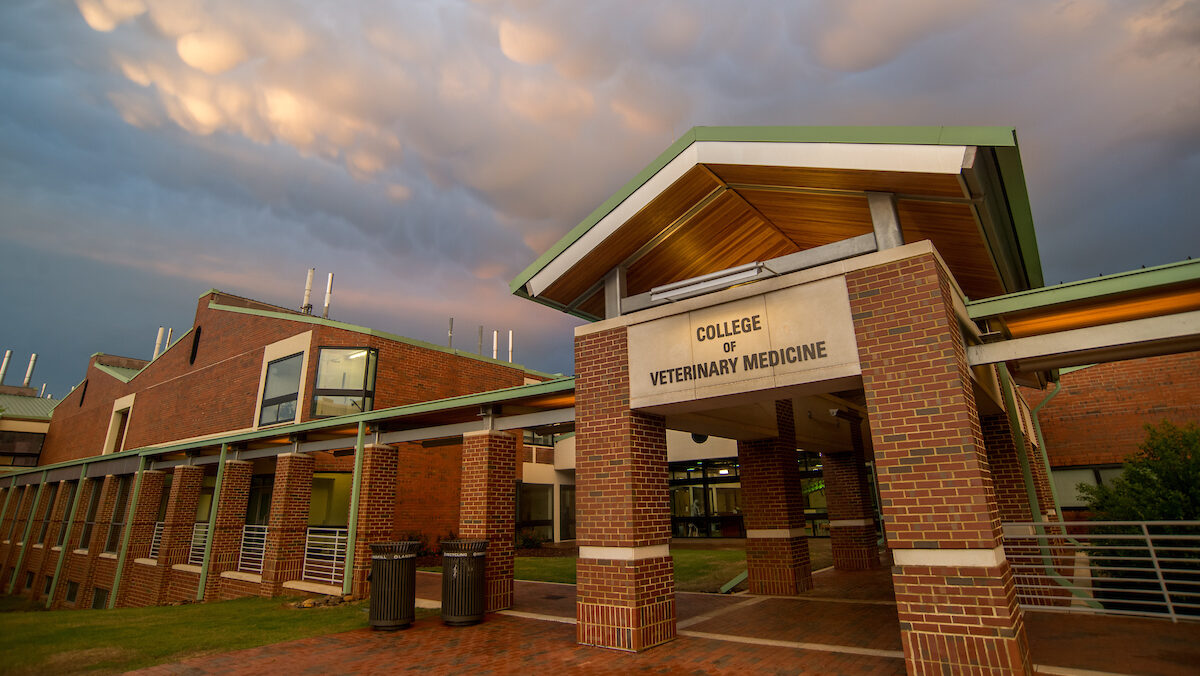A Devotion to Equine Stem Cell Research

The horses hear Alix Berglund coming.
A few lift their heads inquisitively then return to their food. One approaches the gate and nudges its head ever-so slightly over the top rung to say, “Hello.”
Berglund opens a lock on a gate door and removes the chain. One horse approaches slowly, eventually nudging available legs and hands like a pet dog. Berglund calls for the other horse and gently maneuvers it around the open pen.
These are a few of the research horses at the North Carolina State University College of Veterinary Medicine (CVM). They have the potential to help generations of horses that will come after them.
And Berglund is one of the graduate research assistants that is making it all possible.
Since 2014, as a member of the lab of Lauren Schnabel, CVM assistant professor of equine orthopedic surgery, Berglund has conducted research into equine stem cells, used to treat musculoskeletal injuries in horses, especially high-performance equine athletes.
Berglund’s research, funded through a grant from the Morris Animal Foundation since 2016, is centered on making donor stem cells more reliable in equine therapy. Donor cells can be rejected if they are perceived as foreign by a recipient’s immune system, says Berglund. Berglund is focused on techniques to manipulate donor cells to limit this potential for rejection.
“This will enable us to utilize the stem cells as an off-the-shelf product that can be administered to a horse immediately after injury or at the first sign of disease,’ says Berglund.
Earlier this month, the American Farrier’s Association donated $10,000 to the Morris Animal Foundation in support of Berglund’s stem cell research, which is done in conjunction with the work of Schnabel and Matthew Fisher, an assistant professor in the joint department of Biomedical Engineering at North Carolina State University and the University of North Carolina at Chapel Hill. The United States Eventing Association also co-sponsors the project.
Berglund says the CVM’s immunology research Ph.D. concentration within the comparative biomedical sciences program perfectly reflected her specific veterinary medicine interests.
Originally from the Seattle area, Berglund, a lifelong horse lover, completed her doctorate of veterinary medicine at Washington State University. There, she says, she became interested in how to use the immune system to better diagnoses and treat diseases. She knew she wanted to conduct research.
[blockquote color=”orange”]There is a lot of support for equine research here at NC State and the administration has emphasized growing both the equine research and clinical programs like sports medicine and rehabilitation…[/blockquote]
“When I was contacting schools about their Ph.D. programs, NC State was the only school who enthusiastically reached out to me to tell me about the comparative biomedical science and immunology programs,” she says. “They invited me to visit and get to know the faculty and the program. This made a huge difference in determining where I wanted to spend the next four years of my life.”
Joining her on the 3,000-mile trek from Washington to North Carolina was her horse, Oliver. Oliver is now retired, but Berglund still tries to spend time riding other horses whenever she can.
But the majority of her time is on campus, and she’s happy with that. She says she feels proud to be a part of a school that puts such a high value on the future of equine medicine.
“There is a lot of support for equine research here at NC State and the administration has emphasized growing both the equine research and clinical programs like sports medicine and rehabilitation,” she says.
After an anticipated graduation in 2018, Berglund’s goal is to continue working at NC State with Schnabel on stem cell research in horses. She would also like to further develop the horse as a large animal model for translational immunology research.
“The research we are doing now has the potential to make safe and effective stem cell therapy widely available for horses, other companion animals and humans,” says Berglund. “I have found that contributing to improving the health and welfare through research has been just as rewarding as being in the clinic diagnosing and treating animals.”
~Jordan Bartel/NC State Veterinary Medicine


